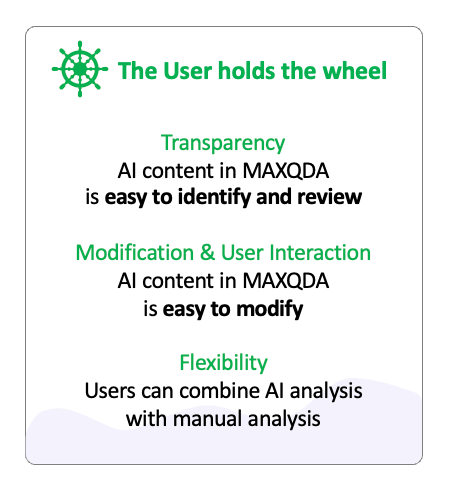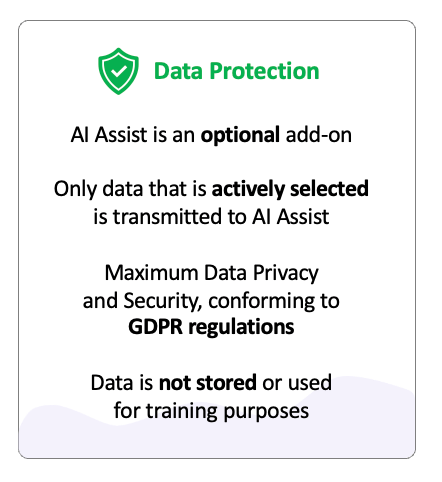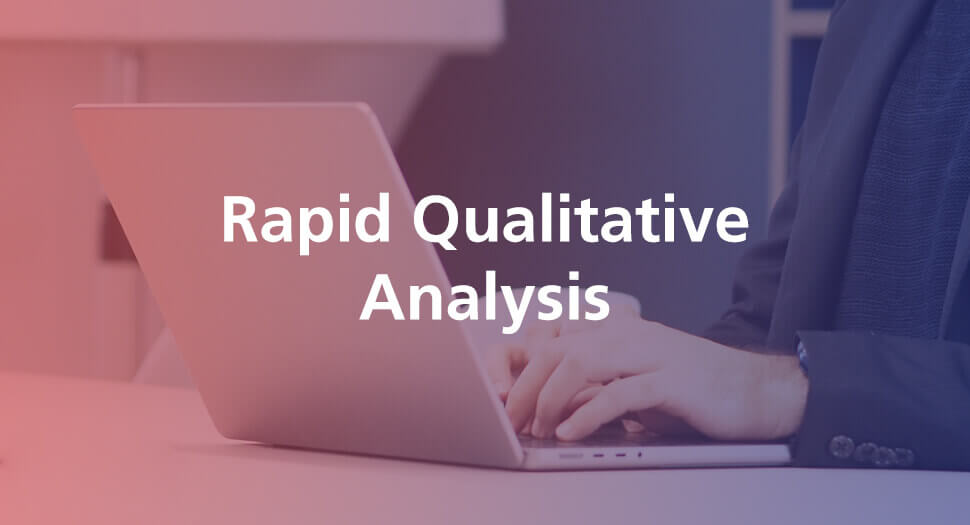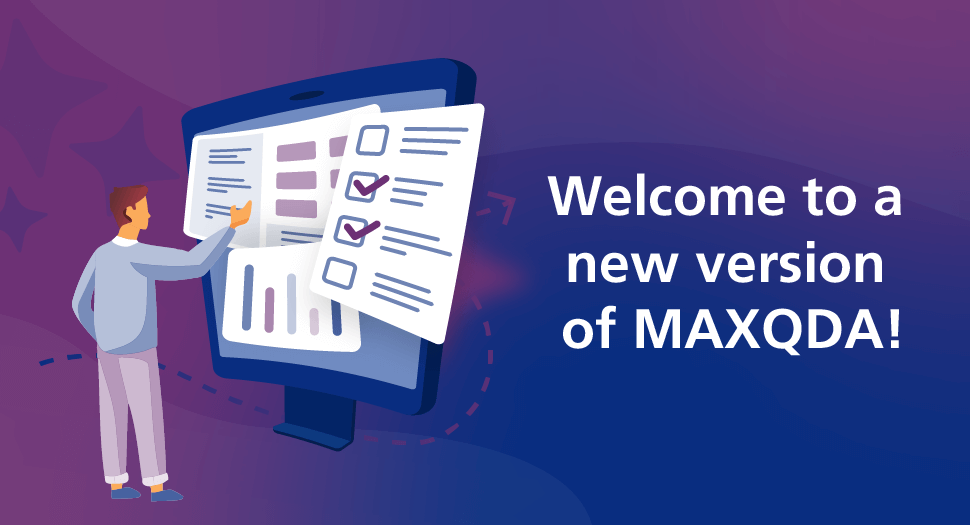This article is based on Julia Gerson, MAXQDA’s Chief Product Officer’s welcoming address at the 2024 MAXQDA International User Conference (MQIC).
Qualitative Research with AI
MAXQDA has long utilized AI for features such as Sentiment Analysis, Topic Modeling, and spell check. However, the introduction of ChatGPT by OpenAI in November of 2022 marked a pivotal moment in the history of AI by making sophisticated AI conversational abilities available to the general public. It was a game-changer for qualitative research software, opening up new possibilities for qualitative research with conversational AI. This innovative moment, consequently, sparked widespread excitement, curiosity, and concerns regarding data privacy and misuse.

Challenges and Considerations of Qualitative Research with AI
We always receive a steady stream of user feedback suggesting new features or improvements for MAXQDA. However, AI has struck a chord with the current zeitgeist. Following the release of ChatGPT, our users weren’t just sending us feedback. They became innovators, sharing their ChatGPT and MAXQDA workflows and were urging us to integrate AI features.
However, challenges extended beyond questions of innovation and digital transformation; they pertained to ethical and legal considerations surrounding the application of AI-powered tools in qualitative research. The concerns that emerged ranged from upholding academic integrity to safeguarding privacy.
VERBI’s Approach to Qualitative Research with AI
In a world buzzing with AI advancements, it’s easy to get swept away by the latest trends and rush to embrace new tech simply because it’s possible. At VERBI, we took a different approach. We value informed decision-making. Additionally, we’re committed to ensuring that each of our innovations serves a purpose and aligns with our core values and user’s needs.
Amidst our commitment to purpose-driven, thoughtful innovation, we recognized the transformative potential of AI technologies in enhancing qualitative research and user experience. This realization led us to develop AI Assist. Our user-centric approach, our mission of designing and delivering innovative software solutions rooted in research, and our commitment to socially responsible practices allowed us to formulate a few key objectives that shaped AI Assist’s design and development.
User Autonomy

Our first goal is to ensure user autonomy. Users need to remain firmly in control of their analytical work.
- AI-generated content is clearly labeled and reviewable. Each memo, comment, summary, or paraphrase created with AI’s assistance is clearly labeled as such.
- Users can customize AI-generated content. Whenever AI Assist generates text, it is immediately presented for the user to review. This empowers users to edit, refine, or reject content on the spot.
- AI-Assist provides flexibility within research workflows. With a selective analysis approach, we designed AI Assist to be an interactive and flexible assistant. Thus, we didn’t follow a ‘one-size-fits-all’ approach, where AI takes over the entire analysis process. MAXQDA’s AI tools are meant to be woven into the stages of your research workflow. Essentially, this means you can decide when and for which part of your project and workflow to use them.

"AI Assist"
We named our AI-powered qualitative assistant "AI Assist" to reflect our strong emphasis on user autonomy and our belief in AI’s potential to enhance rather than do your work.
Data Protection

Our second goal is to guarantee legal and ethical compliance with all AI features. We value privacy. For this reason, it’s imperative that our approach aligns with the highest data protection standards. We also prioritize complete transparency regarding how your information and data are handled
- AI Assist is an optional add-on. We designed our AI features as an optional add-on that can be integrated into MAXQDA only if you want to use it and your institution allows it. Institutions’ ability to decide whether to enable AI Assist’s use also ensures integrity in academic practices.
- We ensure maximum data privacy and security, complying with GDPR. As a European company, VERBI fulfills all GDPR. Additionally, your data is encrypted at rest (AES-256) and in transit (TLS 1.2+). To illustrate this, we can think of data encryption as securing a valuable package. AES-256 encryption at rest is like locking your data in a super-secure safe, making it nearly impossible to access without the right combination. Meanwhile, TLS 1.2+ encryption during transit is like sending your data via a guarded armored truck. Ultimately, whether sitting still or moving, your data is always under tight lock and key.
- We do not store or use data for AI model training purposes. We follow strict policies regarding data storage. Your data is retained by Open AI only for as long as necessary for the requested function’s completion and deleted at the latest after 30 days. Importantly, we do not authorize LLMs (large language models) to utilize your data to train its AI models.

What’s Next in Qualitative Research with AI and MAXQDA?
As we navigate the ever-changing landscape of technology and innovation, we remain committed to empowering our users with tools that enhance their research endeavors while safeguarding privacy and autonomy. Furthermore, with VERBI, it’s not just about staying ahead of the curve; it’s about paving the way for a future where innovation and integrity go hand in hand.
Join us in embracing the possibilities of AI-powered research guided by ethical considerations. Together, let’s continue to push the boundaries of innovation while staying true to our commitment to you.




